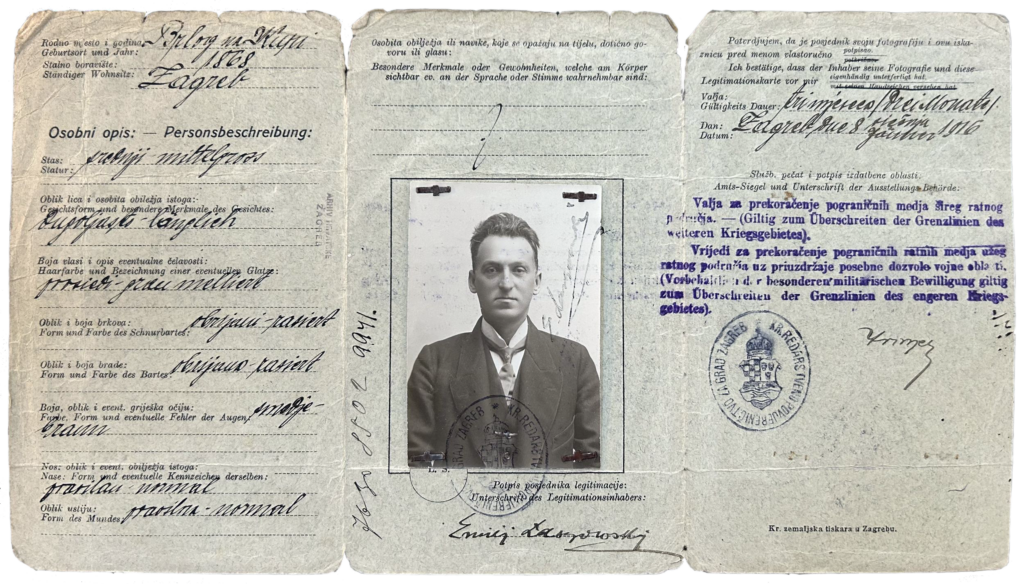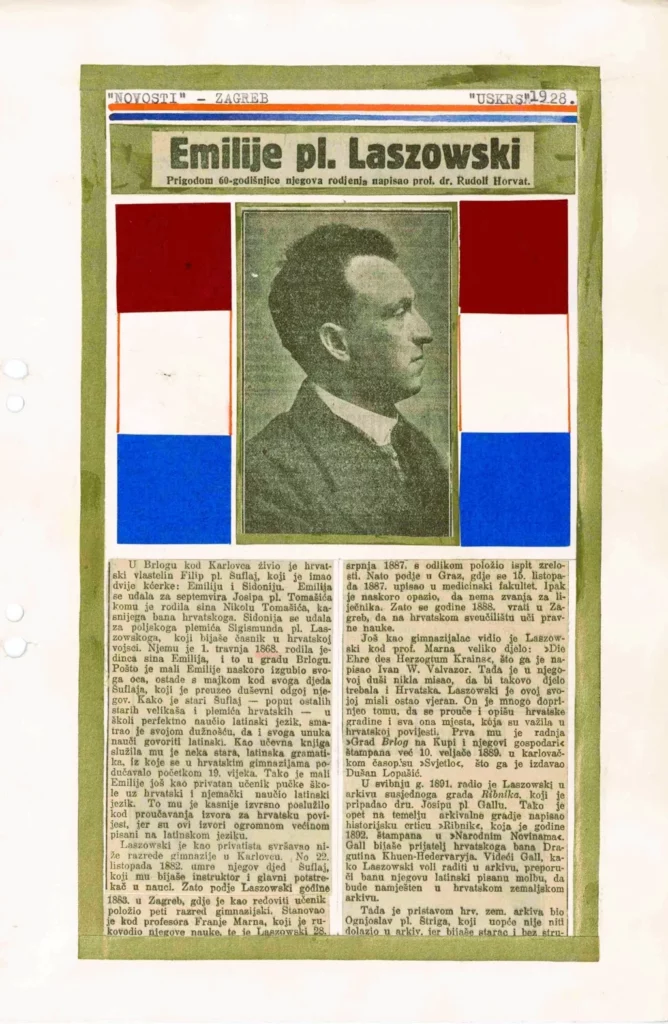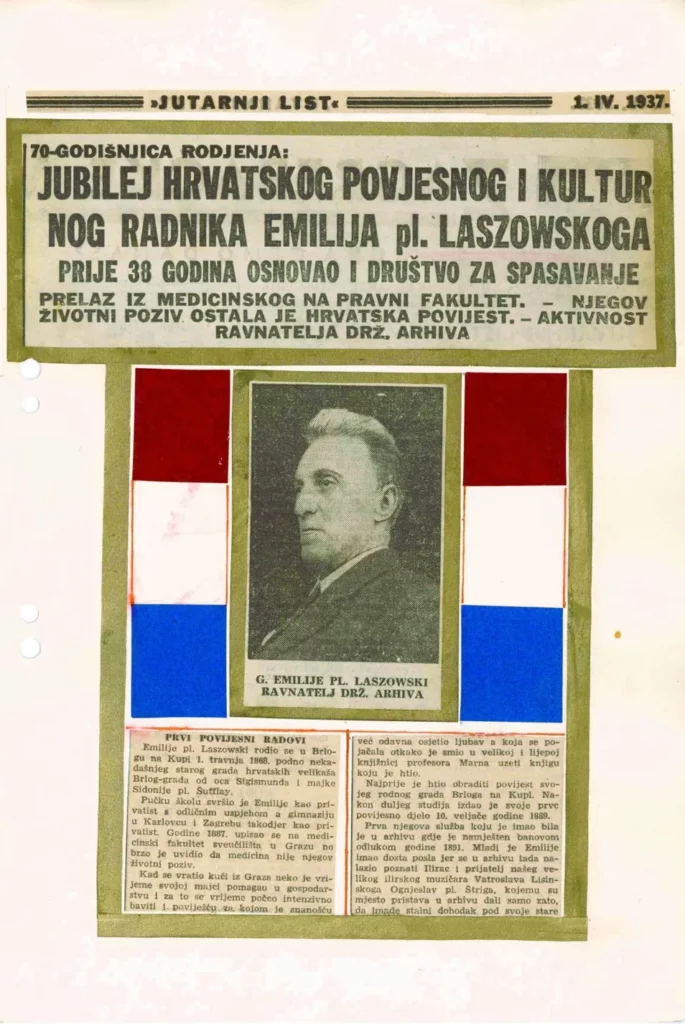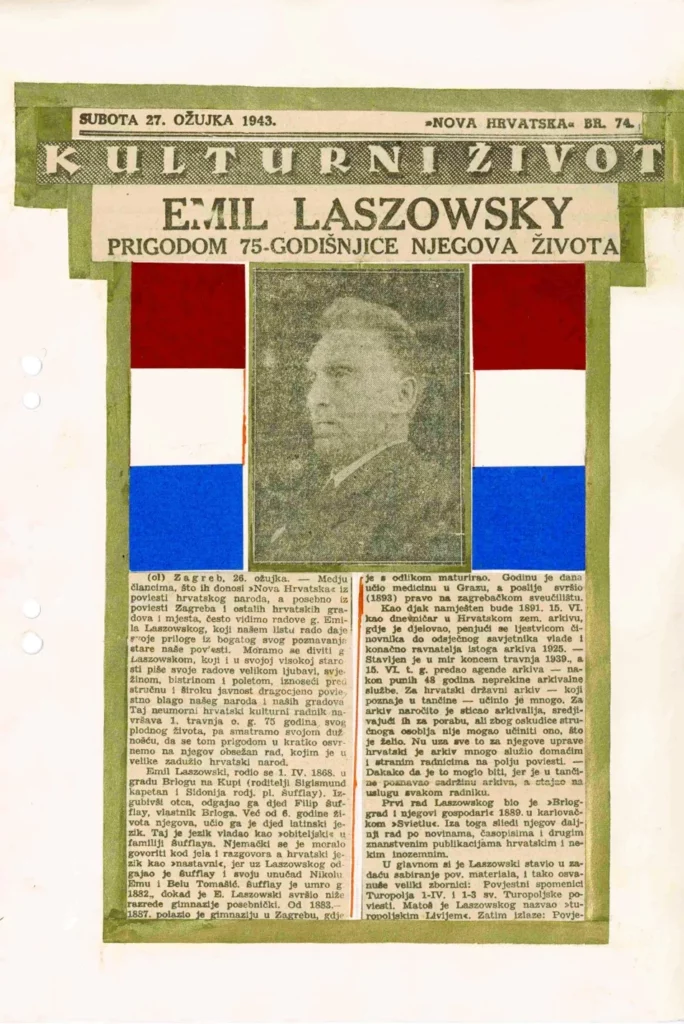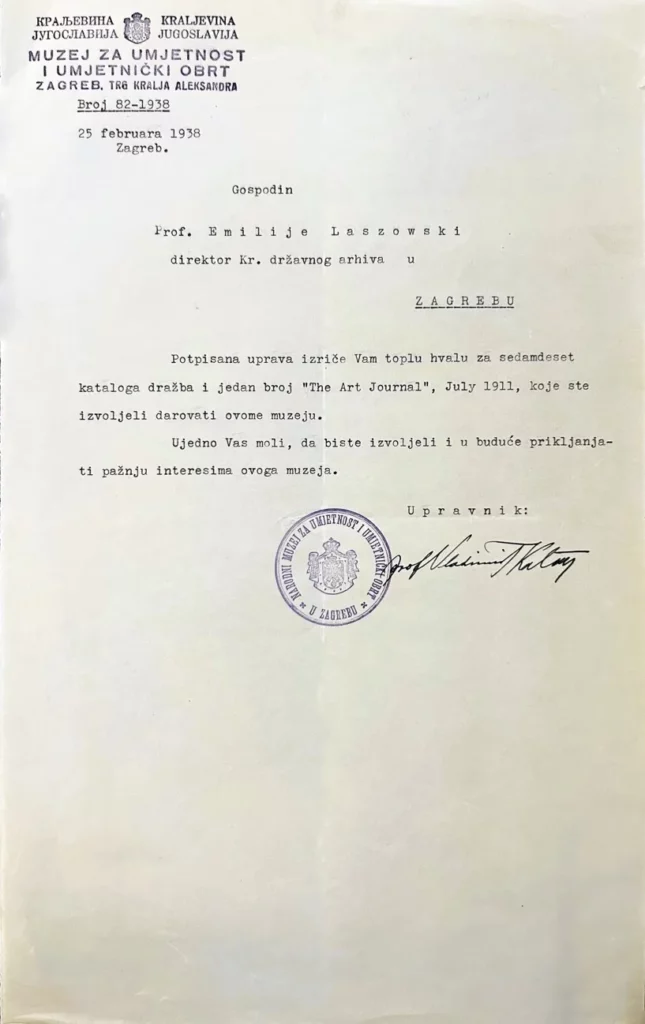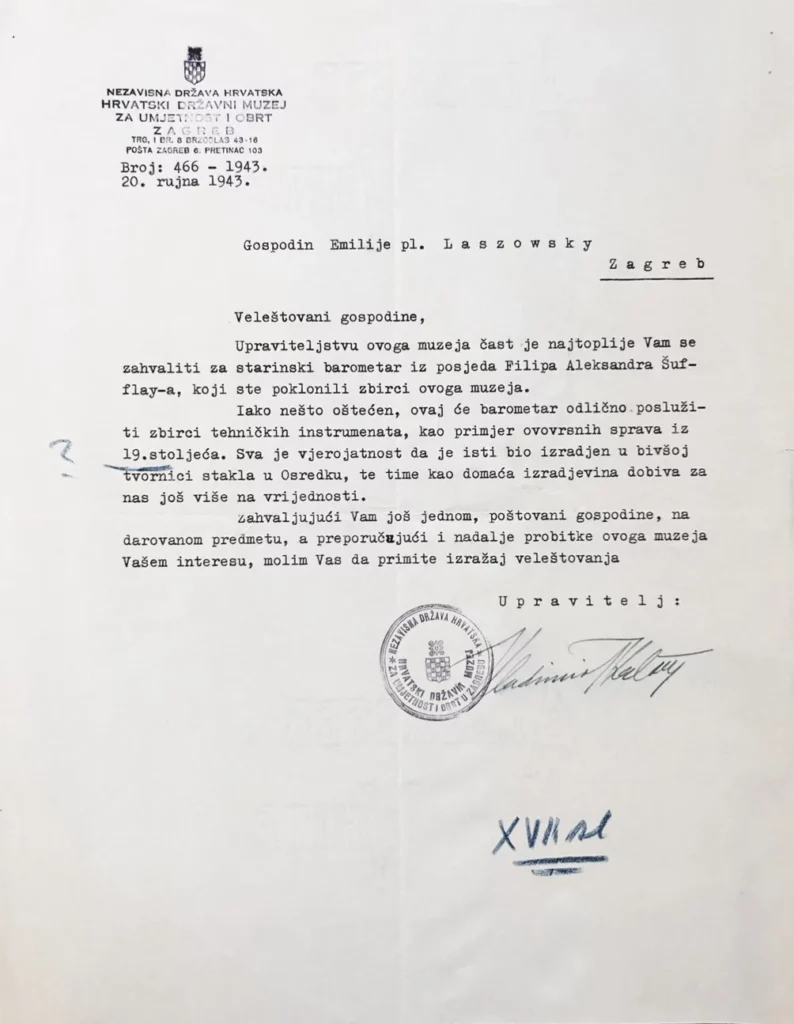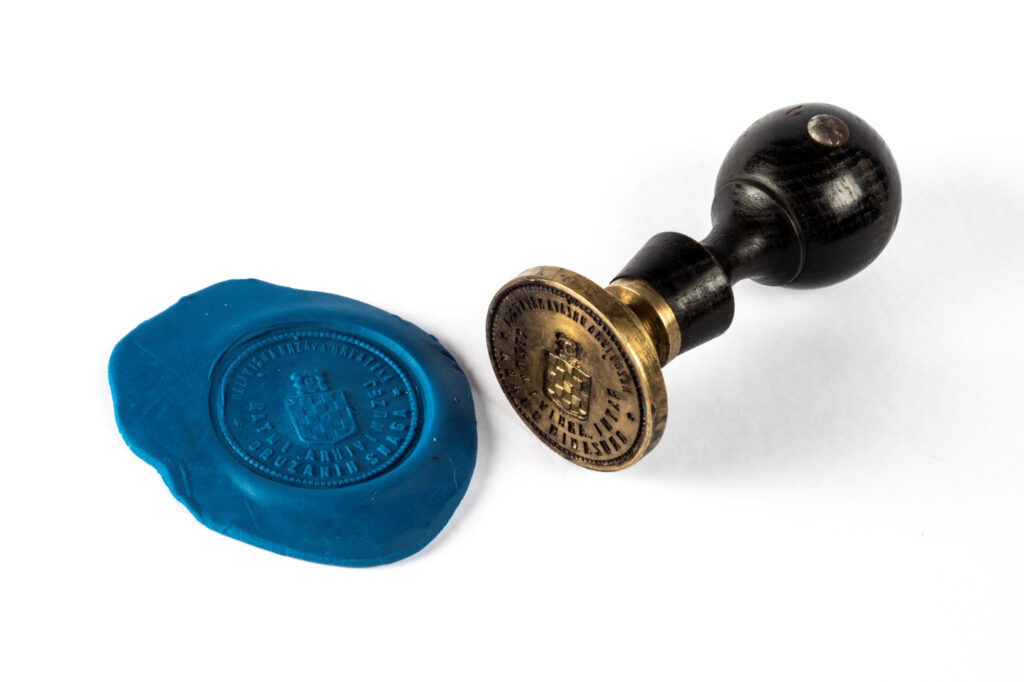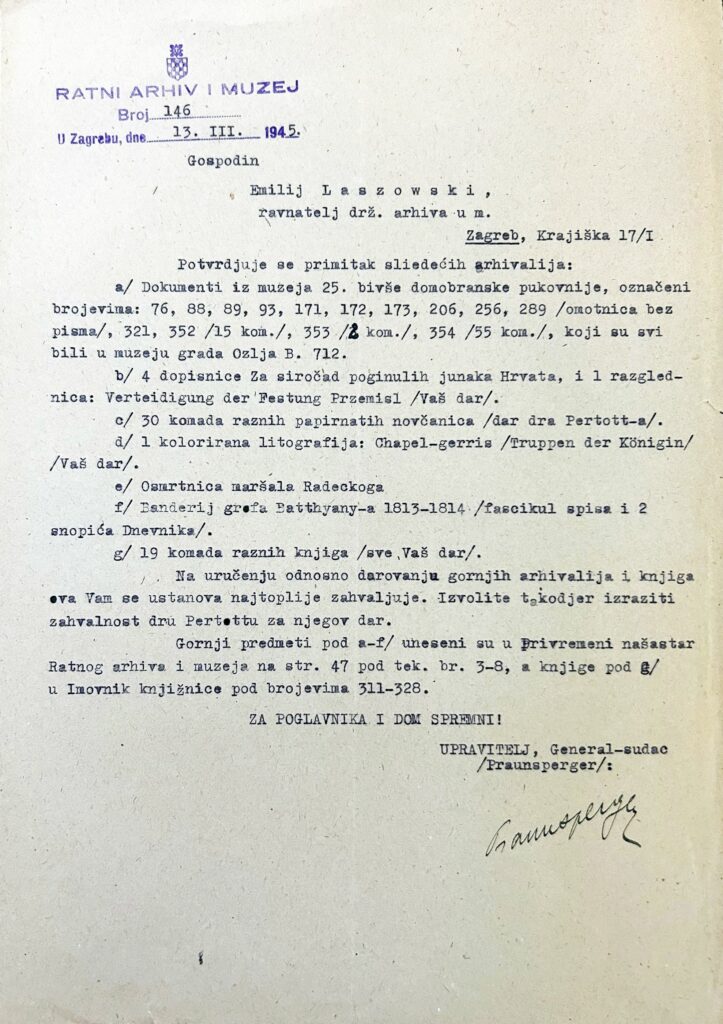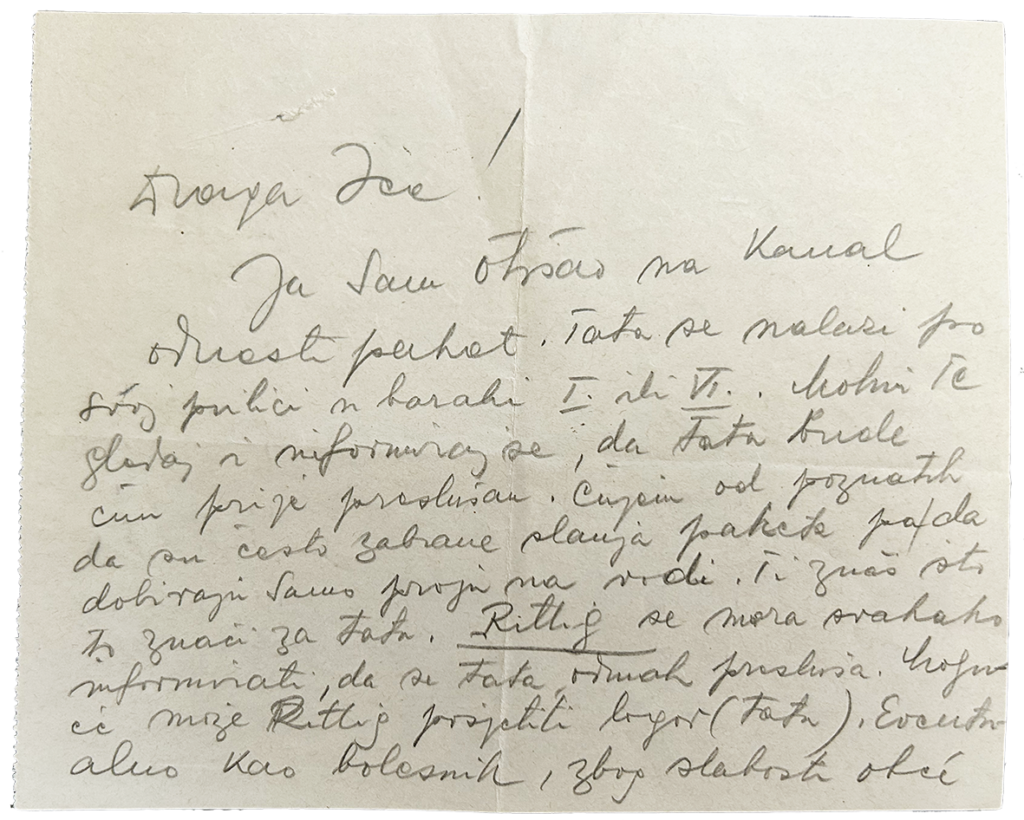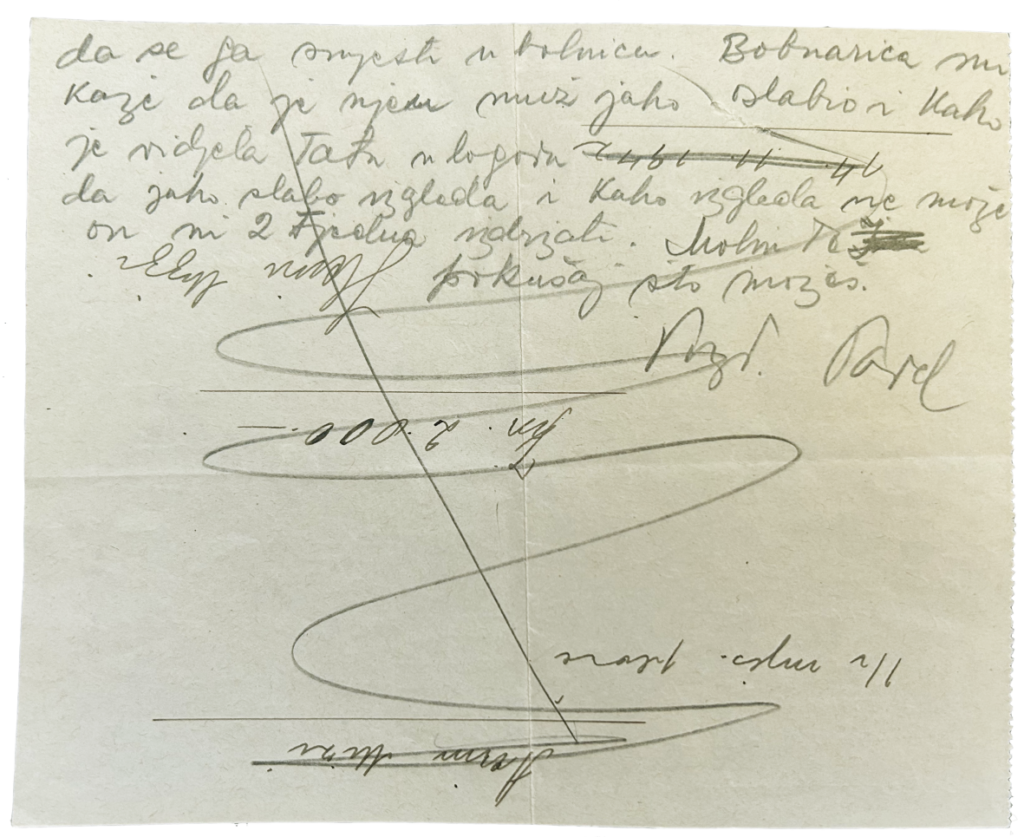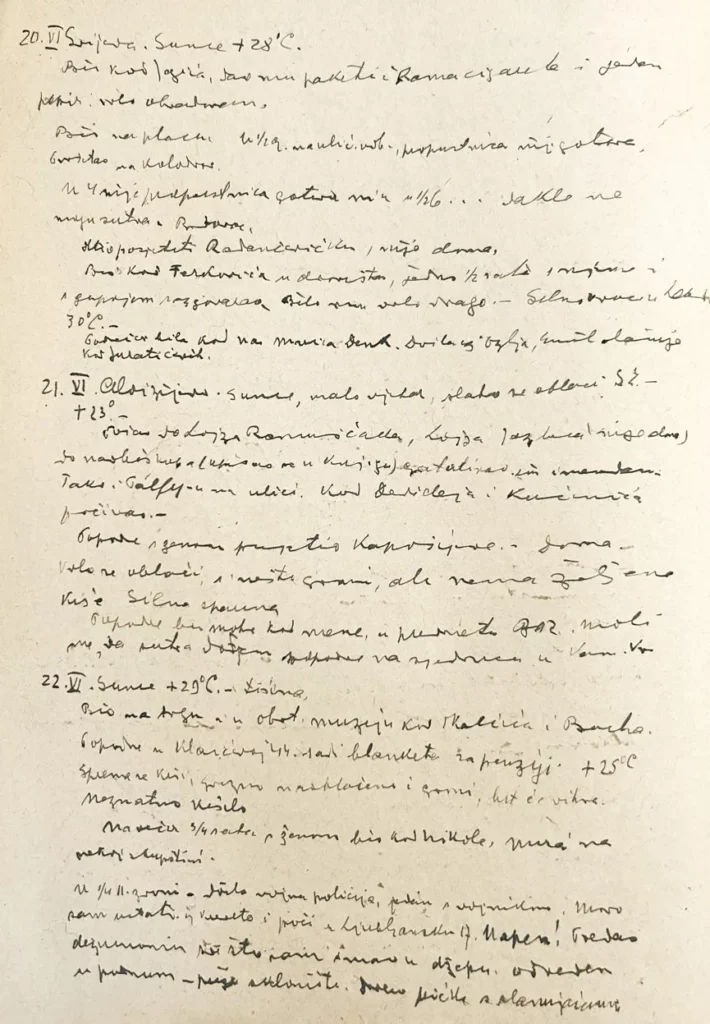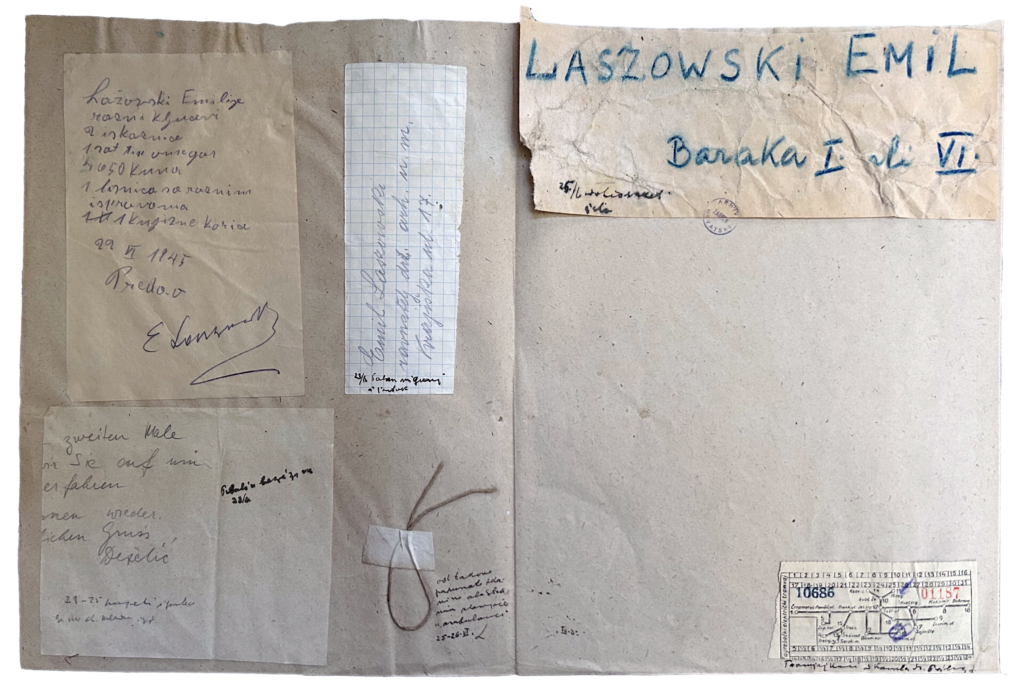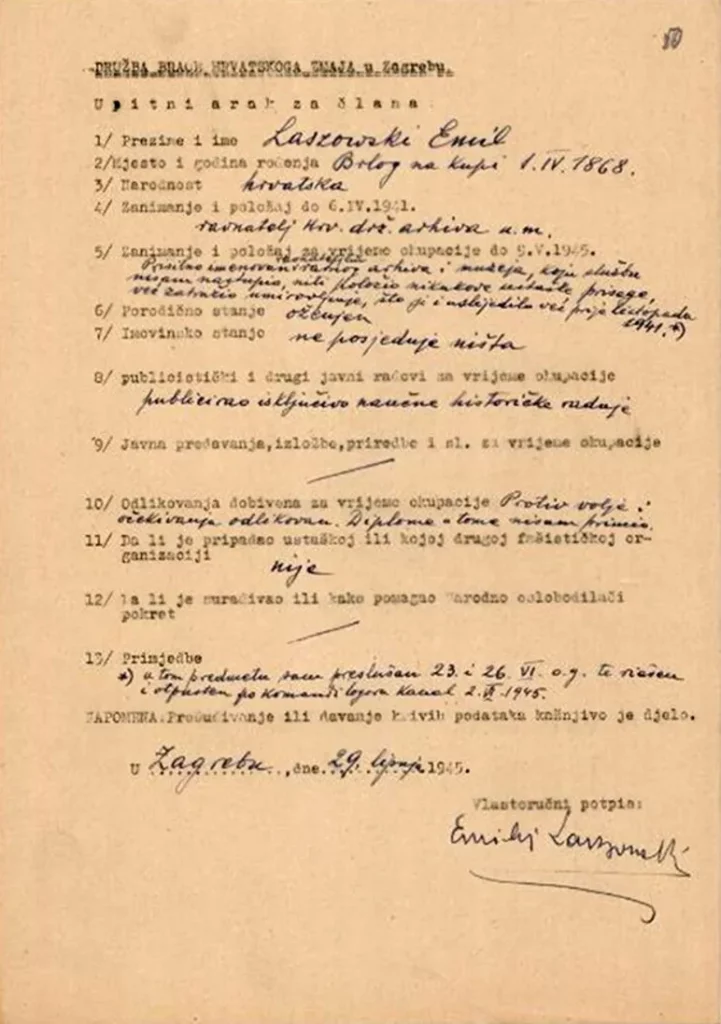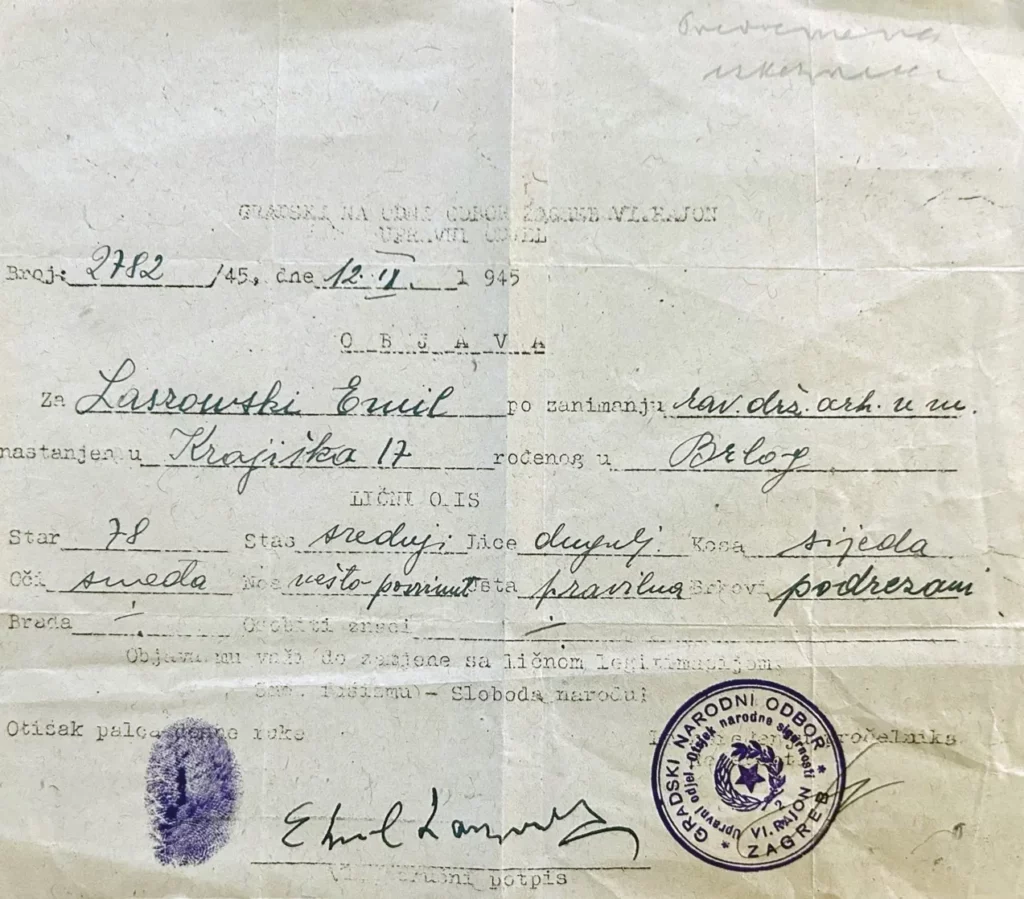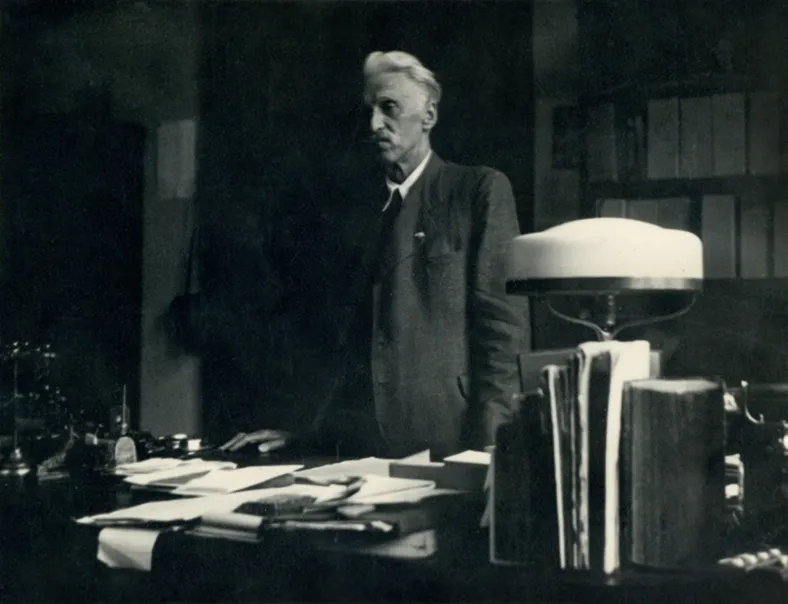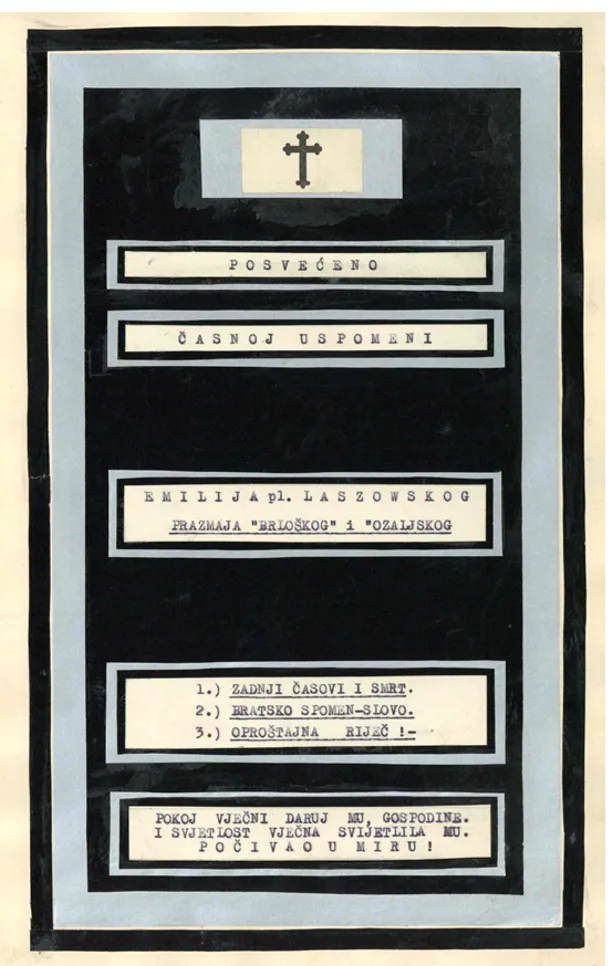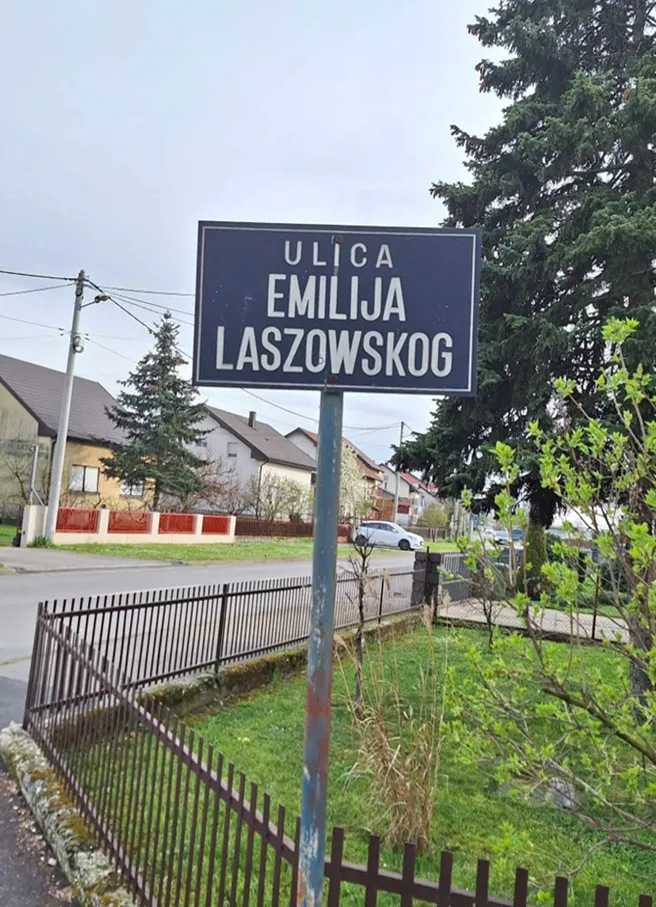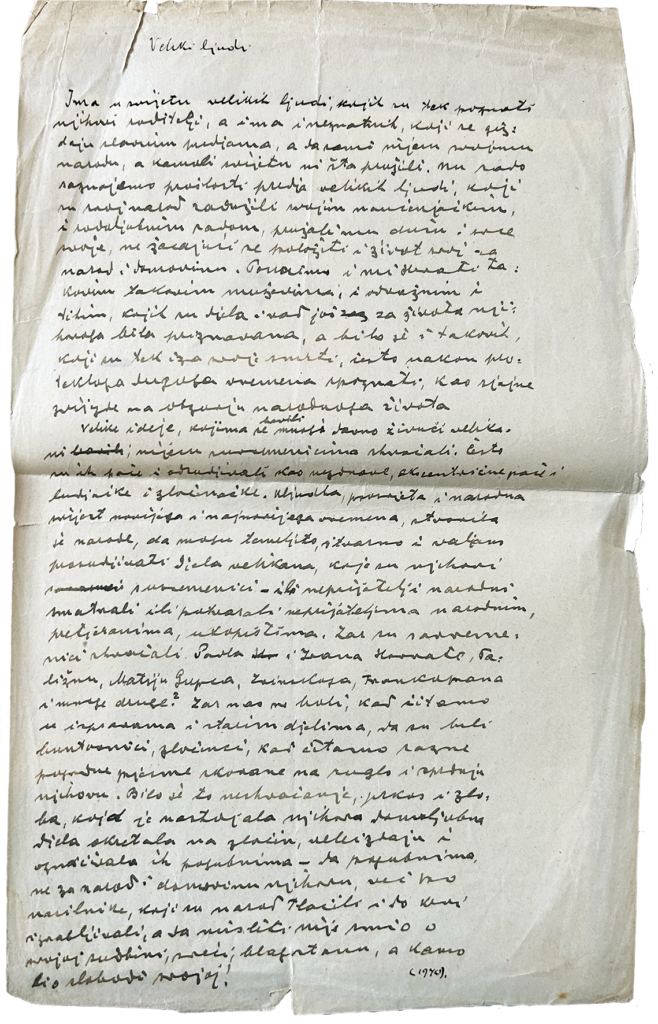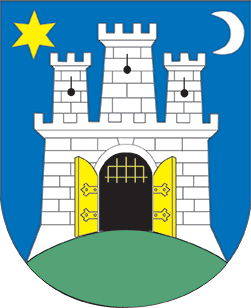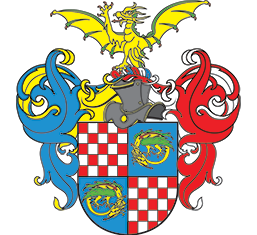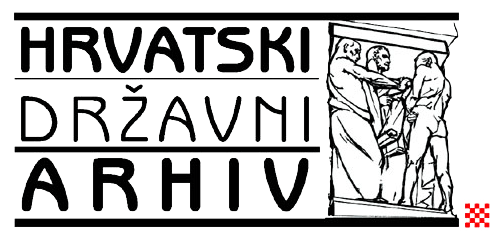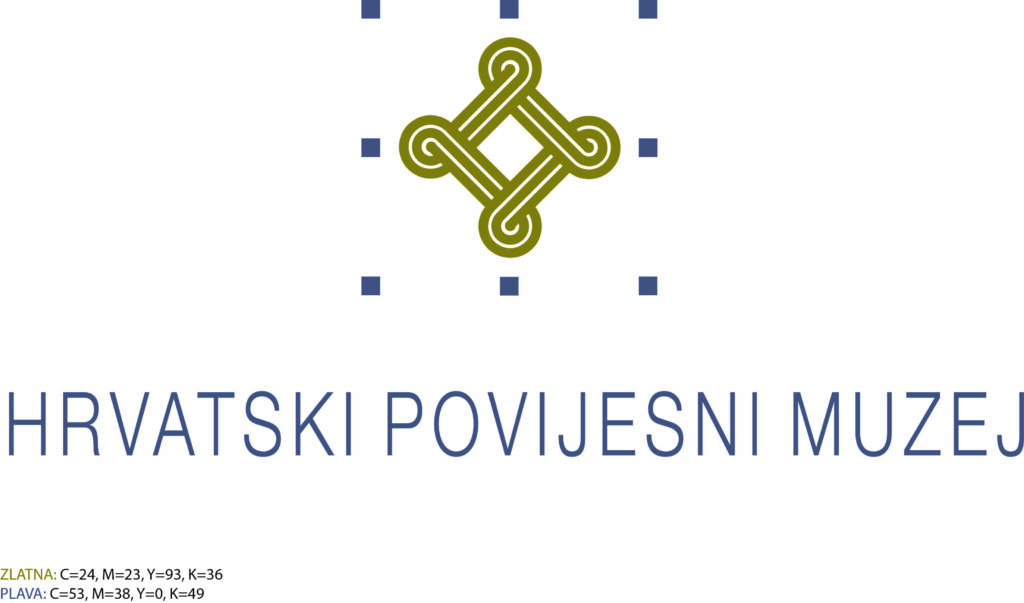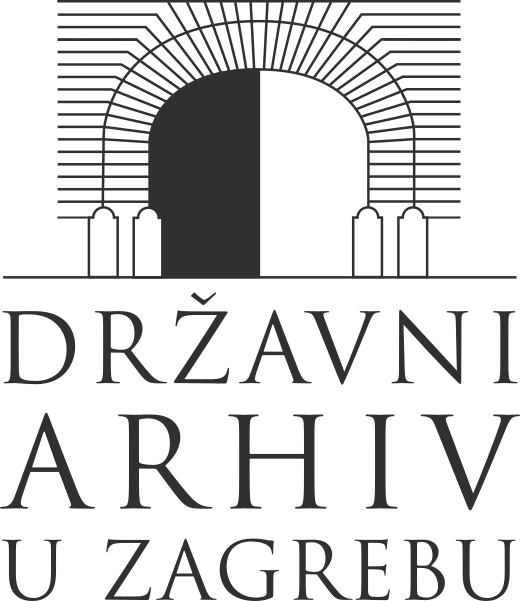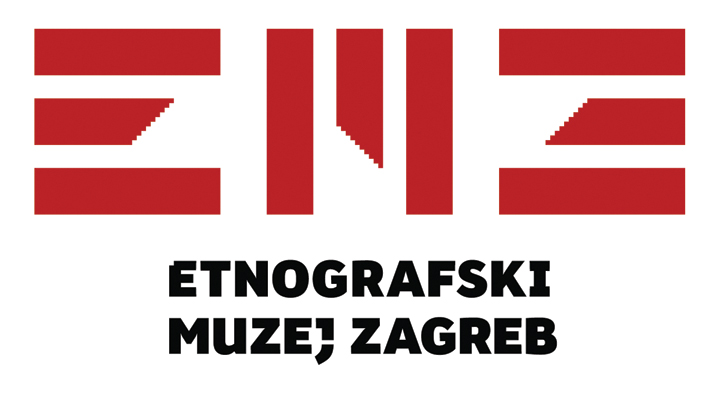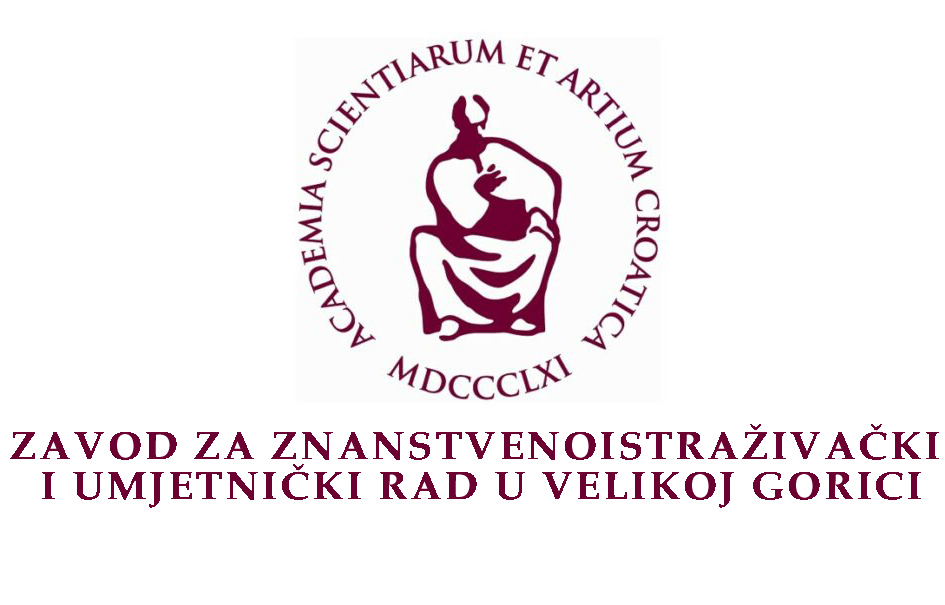16. I know neither hatred nor envy
Even today it has not been fully determined yet which of the work of Emilij Laszowski is more important, that of a publisher of archival material, a historian of Zagreb, co-founder of the Society “Brethern of the Croatian Dragon,” Zagreb City of Museum of the, the Library of the City of Zagreb, the State Archives in Zagreb, Emergency Medical Services, a promoter and advocate of the Zrinski-Frankopan cult, author of a series of popular historical monographs and numerous contributions, an archival worker, or all of the above and much more.
Undoubtedly, he was a scholar who dedicated his entire life to the rich Croatian heritage and history, promoting awareness of the need to protect and preserve Croatia’s written, artistic, and architectural testaments. He was an intellectual with a great ability to register social movements and recognise society’s needs. The relatively favourable situation at the beginning of the 20th century regarding the increasingly strong process of modernising the economy and partial democratisation of social life, combined with the mentioned characteristics of this intellectual, enabled him to establish four capital institutions within the “Brethren of the Croatian Dragon” Society whose social value exceeded the city limits in which they were initially conceived.
While comparing Laszowski’s activities in various fields of private, professional, and social life, it is almost impossible not to ask oneself where this immense energy came from, which allowed him to leave such a permanent mark in the field of culture, where he shaped himself into a recognised historian, archivist, researcher, public figure, and generally, an intellectual of his time.
16.2: Activities of Emilij Laszowski attracted the interest of both professional and wider public. Collected newspaper materials testify to the role this cultural worker played in the Croatian society between the two wars.
Collected, arranged, and decorated by Viktor Mohr, Zmaj Svetoandrijski / Zagreb, November 16, 1965
DBHZ
Living in the dynamic 20th century, he never engaged in any political alliances, gatherings, or protests, strictly adhering to the advice he received personally from Ante Starčević in his youth: “My sons, just work for our country, and shout less…” He behaved like a loyal civil servant in every ruling option within a certain period. His reluctance to engage in political exposure and obedience to the passing political authorities are less of a consequence of any lack of interest in politics or lack of courage, but rather a reflection of his personal dedication to work in the field of culture and science, and an awareness of the significance of such work for society. The value he made through his meticulous work would most likely have been jeopardized if he had engaged in political adventurism and traps that abounded in the years of the empire’s collapse and the uncertain interwar period.
Shortly after the proclamation of the Independent State of Croatia (NDH), he was appointed director of the War Archives and Museum of the NDH. As during previous states, Laszowski sought to fit into the new order and engage in what he knew best – matters of culture. However, the “old” Laszowski, who navigated through the pivotal political moments of the first half of the 20th century very skilfully, was not up to the task of the new political systems established during and after the Second World War. He quickly fell out of favour with the new regimes.
16.4: Seal of the War Archives and Museum of the NDH
Zagreb, 1940’s
MGZ
16.5: Confirmation of receipt of archival materials in the War Archive and Museum of the NDH
Zagreb, March 13, 1945
The first director of this institution was Emilij Laszowski. Although dismissed after only a few months, he continued his collaboration. Political and personal difficulties did not hinder him in his own mission.
HDA
In Socialist Croatia, troubles continued for Laszowski. Shortly after the war, he was arrested by the new authorities and taken in for interrogation. From the police station, he was transferred to the Kanal camp, established by the Department for Protection of the People (OZN), at the site of today’s Zagreb Main Bus Station, where he was released after several days of interrogation. Distraught Laszowski described his captivity in his diary.
16.9: Letter from Pavao Laszowski about his father’s Emilij situation in the camp
His son Pavao tries to intervene with Svetozar Rittig, a church dignitary, prominent member of the NOP, and a historian, regarding the position of his father, with whom Rittig collaborated in the interwar period.
Zagreb, end of June, 1945
HDA
Draga Ico!
Dear Ico!
I went to Kanal to deliver a package. Father is probably in barracks 1 or 6. Please check and get information so that father can be interrogated as soon as possible. I hear from acquaintances that they often prohibit sending packages, so they only get bread and water. You know what that means for my father. Rittig must definitely be informed of this, so father can be interrogated immediately. Possibly Rittig can visit the camp (father). Possibly as a patient, because of general weakness, to have him placed in the hospital. Bobnarica tells me that her husband has been weakening a lot and that she saw father in the camp looking very frail and that he looked like he would not withstand even two more weeks. Please see what you can do.
Regards. Pavel
In the last years of his life, Laszowski remained active. Collaboration with numerous institutions narrowed down to persistent donation of materials. With retirement from the position of director of the State Archives and dissolution of the “Brethren of the Croatian Dragon” Society he gradually disappeared from public life. Emilij Laszowski, one of the most diligent and prolific Croatian cultural workers of his time passed away on 28 November, 1949. Due to commemorations of the Republic Day on 29 November, the circumstances prevented timely printing of obituaries that would have informed his numerous friends, a large circle of cultural public figures, and above all, the Dragon brothers about the farewell to this great man. Thus, the circumstances did not allow for a magnificent funeral that Laszowski deserved.
16.14: Thank-you notes for the donations to the “true founder” of the Zagreb City Museum
Zagreb, May 7, 1946
Laszowski’s significance for the Zagreb City Museum did not fade even 20 years after his departure from the position of director, and he himself continued to donate to the city museum until his death.
HDA
It was the beginning of disappearance of his name from the collective memory of people. In the following decades, memory of Laszowski underwent the fate of selective memory, i.e. selective forgetting. In a reconstructed memory, there was no place for him. The shattered pre-war past had to be rebuilt, with something important being forgotten. The true subject of analysis of every social memory should therefore focus on what was suddenly forgotten in its constitution. Patterns of forgetting have repeated until today. However, the professional public has tried over the past few decades, through exhibitions, collections, professional and scientific literature, to draw attention to the significance of the character and work of Emilij Laszowski. But such efforts have not yet achieved the goal of reaching a wider audience.
He showed his continuing attention, we can even say obsession, in preserving the memory of the great figures of Croatian history, among other things, through his work in the Committee for names of streets and squares in the City of Zagreb. Unfortunately, he himself has not been recognized by his successors in that body, at least so far, as a worthy contributor to have a part of the public space in the capital city of Croatia named after him.
Nevertheless, Emilij Laszowski left behind a multitude of tangible results perceptible in the daily life of Zagreb, which individually act as unofficial testaments to his life, work, and vision.
Great people
There are great people in the world, who are only known by their parents, and there are irrelevant ones who boast about famous ancestors without having offered anything to their people, let alone the world. But we gladly learn about the past of great ancestors who have enriched their nations with their scholarly and patriotic work, offering it their soul and heart, not hesitating to lay down their lives for the nation and their country. We Croats are proud of such men, both bold and quiet, whose deeds and work were recognized even during their lifetime, and there were those who were only recognized after their death, often after a long time, like bright stars on the horizon of national life.
Great ideas, which many great men of the past dealt with, were not understood by their contemporaries. Often, they were even condemned as troublesome, eccentric, even mad criminals. Civilisation, education, and national consciousness of recent and modern times created nations that can thoroughly, accurately, and fittingly judge the deeds of great men, which their contemporaries or national enemies considered or labelled as enemies of the people, extreme, utopians. Did contemporaries understand Pavle and Ivan Horvat, Paližna, Matija Gubec, Zrinski, Frankopan, and many others? Does not it hurt us, when we read in documents and old works, that they were rebels, criminals, when we read various historical poems coined to ridicule and mock them. It was misunderstanding, defiance, and malice that sought to divert their patriotic deeds into crime, treason, and marked them as deadly – yes, deadly, not for their people and the country, but for the tyrants who oppressed the people and exploited them to death, without daring to think about their fate, happiness, prosperity, let alone their liberty!


